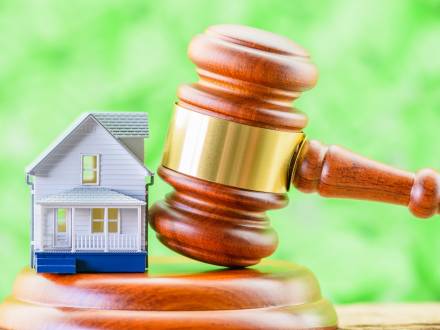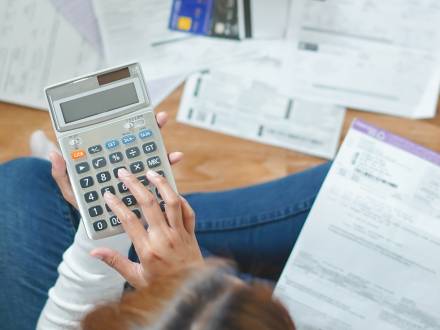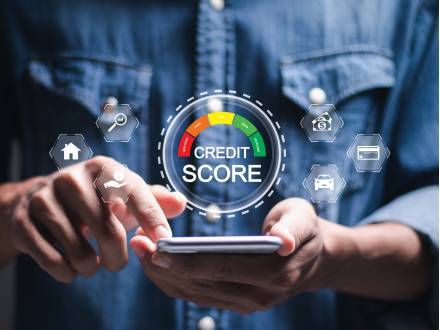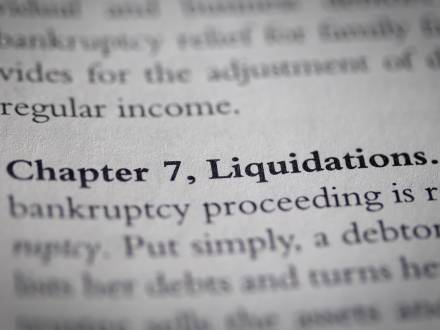Recent Blog Posts
How can bankruptcy impact tax liens and levies?
 Filing for bankruptcy can be a complicated decision, especially when dealing with tax liens and levies in Maryland. It can be helpful to learn about the impact bankruptcy can have on these financial obligations.
Filing for bankruptcy can be a complicated decision, especially when dealing with tax liens and levies in Maryland. It can be helpful to learn about the impact bankruptcy can have on these financial obligations.
The difference between tax liens and levies
A tax lien is the government's claim on your property for unpaid taxes, ensuring payment if you sell. A tax levy is the government seizing your property or assets to satisfy the tax debt.
How bankruptcy affects tax liens
When you file for bankruptcy, an automatic stay stops most collection activities, including tax liens. Bankruptcy does not eliminate tax liens. If the lien attaches to your property, the IRS still claims it. Chapter 13 bankruptcy allows you to repay your tax debt through a structured plan, potentially removing the lien once you pay the debt.
How bankruptcy affects tax levies
Filing for bankruptcy activates an automatic stay on tax levies, stopping the IRS from seizing your assets. In a Chapter 7 bankruptcy, you might discharge certain taxes if you meet specific criteria. In a Chapter 13 bankruptcy, you can include your tax debt in the repayment plan, which stops further levies.
Legal options for reducing tax penalties on overdue taxes
 Dealing with overdue taxes can be stressful. However, there are legal ways to reduce or eliminate tax penalties and interest. Understanding these options can help you manage your tax debt more effectively.
Dealing with overdue taxes can be stressful. However, there are legal ways to reduce or eliminate tax penalties and interest. Understanding these options can help you manage your tax debt more effectively.
Request a penalty waiver
One option is to request a penalty waiver. If you have a good reason for missing the tax deadline, you can ask the Maryland Comptroller's Office to waive the penalties. Valid reasons may include serious illness, natural disasters, or other unavoidable circumstances. Providing proper documentation to support your request increases your chances of approval.
Apply for an installment agreement
If you cannot pay your tax debt in full, consider applying for an installment agreement. This allows you to pay your taxes over time in smaller, more manageable amounts. While interest may still accrue, an installment agreement can prevent additional penalties from being added.
Mistakes to avoid while trying to rebuild your credit
 Rebuilding your credit after filing for bankruptcy in Maryland is a crucial step toward financial stability. Avoiding certain common mistakes can help you enhance your credit score more effectively.
Rebuilding your credit after filing for bankruptcy in Maryland is a crucial step toward financial stability. Avoiding certain common mistakes can help you enhance your credit score more effectively.
Accumulating new debt
One of the biggest mistakes to avoid is taking on new debt too quickly. After bankruptcy, focus on managing your finances without relying on additional credit. Acquiring new debt can hinder your progress and negatively impact your newly recovering credit score.
Ignoring credit report errors
Post-bankruptcy, it's essential to ensure that all discharged debts are correctly reported. So, regularly check your credit report for inaccuracies. Failure to address errors can keep your score lower than it should be.
Failing to create a budget
Not establishing a budget is a critical oversight. A well-planned budget helps manage finances effectively, ensuring that you live within your means and avoid the financial missteps that lead to bankruptcy.
Foreclosure vs. bankruptcy: How can you protect your home?
 Facing financial difficulties can be overwhelming, especially when your home is at risk. If you find yourself struggling to keep up with mortgage payments among other financial responsibilities, it is essential to know your options. Understanding how bankruptcy can defend against foreclosure can help you make the best possible solution for your situation.
Facing financial difficulties can be overwhelming, especially when your home is at risk. If you find yourself struggling to keep up with mortgage payments among other financial responsibilities, it is essential to know your options. Understanding how bankruptcy can defend against foreclosure can help you make the best possible solution for your situation.
What is foreclosure?
Foreclosure is a legal process where the lender takes control of your home due to your missed mortgage payments. This process can be stressful and can result in you losing your home. In Maryland, foreclosure can take several months, giving you some time to explore other options.
What is bankruptcy?
Bankruptcy is a legal process that helps you manage or eliminate your debts. There are several types of bankruptcy, but the two most common for homeowners are Chapter 7 and Chapter 13. Chapter 7 can discharge a significant part of your debts, but you might have to liquidate your house and other assets. Chapter 13, on the other hand, allows you to keep your home by restructuring your mortgage debts and payment arrangement.
How long does a bankruptcy filing stay on your credit report?
 When considering bankruptcy, one concern for many people is its long-term impact on their credit report. Bankruptcy is a legal process that can provide relief for those overwhelmed by debt. However, it also has consequences, including its effect on credit.
When considering bankruptcy, one concern for many people is its long-term impact on their credit report. Bankruptcy is a legal process that can provide relief for those overwhelmed by debt. However, it also has consequences, including its effect on credit.
Understanding how long a bankruptcy filing stays on your credit report is necessary for planning financial recovery.
How long it stays on a credit report
A bankruptcy filing can remain on your credit report for up to ten years. This means that the bankruptcy record will be visible to lenders and creditors who check your credit history during that time. The type of bankruptcy filed also impacts how long it stays on your report. Chapter 7 bankruptcies, which involve liquidation of assets, typically stay on your credit report for ten years from the filing date. Chapter 13 bankruptcies, which involve a repayment plan, stay on your credit report for seven years from the filing date.
How it impacts a credit score
Having a bankruptcy on your credit report impacts your credit score. Despite the negative impact of bankruptcy on your credit report, it is possible to rebuild your credit over time. It may take several years to do so. During this time, obtaining new credit or loans may be challenging. If approved, you may face higher interest rates. However, it is still possible to improve your credit score over time by practicing responsible financial habits, such as making timely payments and keeping credit card balances low. It is also wise to check your report regularly for errors.
What are reasons a court may deny a Chapter 7 discharge?
 Even if expensive medical bills or the aftermath of a divorce feel financially overwhelming, you can still find a way to relieve your mounting debt through bankruptcy. You may have decided Chapter 7 is right for you, but you still worry that you have no guarantee of a debt discharge.
Even if expensive medical bills or the aftermath of a divorce feel financially overwhelming, you can still find a way to relieve your mounting debt through bankruptcy. You may have decided Chapter 7 is right for you, but you still worry that you have no guarantee of a debt discharge.
It is true that Chapter 7 filers do not have as much of a right to a discharge as Chapter 13 filers. This is because creditors or even your bankruptcy trustee can object to a discharge in Chapter 7. However, specific situations require a judge to deny you a discharge. By knowing what a court expects from you, you may feel more confident about proceeding with your bankruptcy.
Failure to complete bankruptcy standards
Before receiving a discharge, you must complete a course on personal financial management. You must also submit all required tax documents to the court, and provide accurate and complete documentation. Also, if you cannot adequately explain a loss or deficiency of your assets, the court may deny your discharge.
What assets can creditors take when you file for bankruptcy?
Filing for bankruptcy can be a stressful experience. When you file for bankruptcy, creditors may take some of your belongings to pay off your debts.
Knowing what creditors can and cannot take helps you prepare for the process. In bankruptcy, assets fall into two categories: exempt and non-exempt. Exempt assets are items you get to keep. Non-exempt assets are those that creditors can take.
Exempt assets
Exempt assets include items necessary for daily living. These typically cover a primary home, up to a certain value, known as a homestead exemption. Personal belongings like clothing, furniture and household goods often fall under exemptions. Most retirement accounts, such as 401(k)s and IRAs, are also safe. Additionally, tools of the trade, or items you need for work, usually qualify as exempt up to a certain value.
Non-exempt assets
Non-exempt assets are items that creditors can take. These often include second homes, vacation properties and valuable collections like art or jewelry. Luxury items and high-value electronics may also be at risk. Extra vehicles beyond the one you need for daily transportation can be non-exempt. Stocks, bonds and cash that do not fall under retirement savings might also have to go to pay debts.
Navigating medical debt through Chapter 13 bankruptcy
Medical debt can quickly become overwhelming. It leads to financial distress for many individuals and families. In these situations, Chapter 13 bankruptcy offers a structured path to manage and potentially discharge medical debts while keeping your assets intact.
Understanding Chapter 13 bankruptcy
Chapter 13 bankruptcy, also known as a wage earner's plan, helps individuals with regular income create a repayment plan for their debts.
This plan typically lasts three to five years and allows individuals to pay back all or part of their debts in a structured way.
Unlike Chapter 7 bankruptcy, which requires selling off assets to pay creditors, Chapter 13 lets you keep your property and catch up on overdue payments with a court-approved repayment plan.
Creating a repayment plan
The Chapter 13 bankruptcy repayment plan takes your financial situation, income, expenses, and the total amount of debt into account.
Do store credit cards hurt or help your credit score?
Store credit cards can be tempting offers, especially when they promise discounts and rewards for shopping at your favorite stores.
Credit reporting agencies view accounts associated with retail stores in a slightly different way from other consumer credit cards. So before you sign up for one, consider how store credit cards can change your credit score.
Positive impacts
One of the primary ways store credit cards can help your credit score is by allowing you to build a positive credit history. Making timely payments on your account demonstrates to creditors that you can manage credit responsibly. This positive payment history can boost your credit score over time.
Having a mix of credit types can also benefit your credit score. Store credit cards represent a different type of credit than traditional credit cards or loans, so having a store card in your mix can show lenders that you can handle various types of credit.
Some store credit cards offer rewards programs that save money on future purchases. By using your store credit card for purchases you would make anyway and paying off the balance each month, you can take advantage of these rewards without incurring interest charges.
How does a divorce increase your likelihood of filing bankruptcy?
Divorce can bring significant emotional and financial challenges. With the financial strain a divorce can bring, bankruptcy becomes a real possibility for many couples.
Understanding how the process of divorce can increase the likelihood of filing for bankruptcy can help you prepare for the future.
Division of assets and debts
During divorce proceedings, assets and debts accumulated during the marriage must be distributed fairly between the spouses. This process can be complex and may require the assistance of financial experts. However, even with fair division, the resulting financial situation for both parties may be less favorable than it was during the marriage. This can lead to increased financial instability and the possibility of bankruptcy.
Loss of dual income
In many marriages, both partners contribute financially to the household. When a couple divorces, the loss of a second income can significantly impact each spouse's financial stability. Suddenly, one household must now support two separate households, leading to increased expenses and potentially reduced savings.






